Key takeaways:
- Balancing profit with environmental health is crucial; ESG must genuinely enhance community livelihoods, not just serve as compliance checkboxes.
- Proactive community engagement and transparency in operations can transform skepticism into support, fostering better relationships with local populations.
- Integrating ESG criteria into investment decisions is vital for realizing the link between sustainable practices and financial performance.
- Listening to community concerns and remaining adaptable leads to more effective and responsible mining practices.
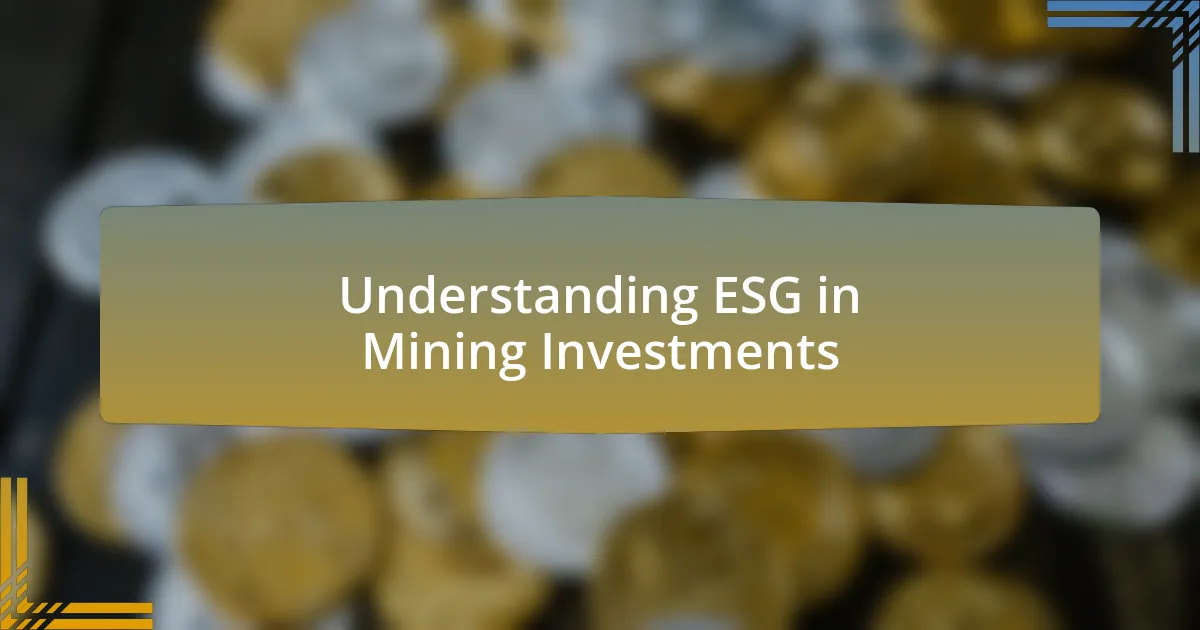
Understanding ESG in Mining Investments
Navigating the world of ESG—Environmental, Social, and Governance—within mining investments is no small feat. I remember attending a conference where the speaker posed a striking question: “How can we genuinely balance profit with the planet’s health?” This reflection sparked a deep dive into how these principles can guide responsible mining practices, revealing the intricate relationship between sustainability and financial returns.
For me, the real challenge lies in understanding how mining operations affect local communities. I once visited a remote mining site and witnessed firsthand the blend of opportunity and disruption. The local populace craved economic growth, but their plight tugged at my heartstrings. It raised crucial questions about how we can ensure that social aspects of ESG are not just checkbox items, but genuine commitments to enhance the livelihoods of those impacted.
Governance in mining often presents a unique set of challenges. I’ve found that strong governance structures can illuminate the path toward more sustainable practices, but they require diligent oversight and transparency. How do we, as investors, ensure that our investments back companies genuinely committed to ethical practices? It’s a question worth exploring, as the right answers can guide us in making more informed and responsible investment choices.
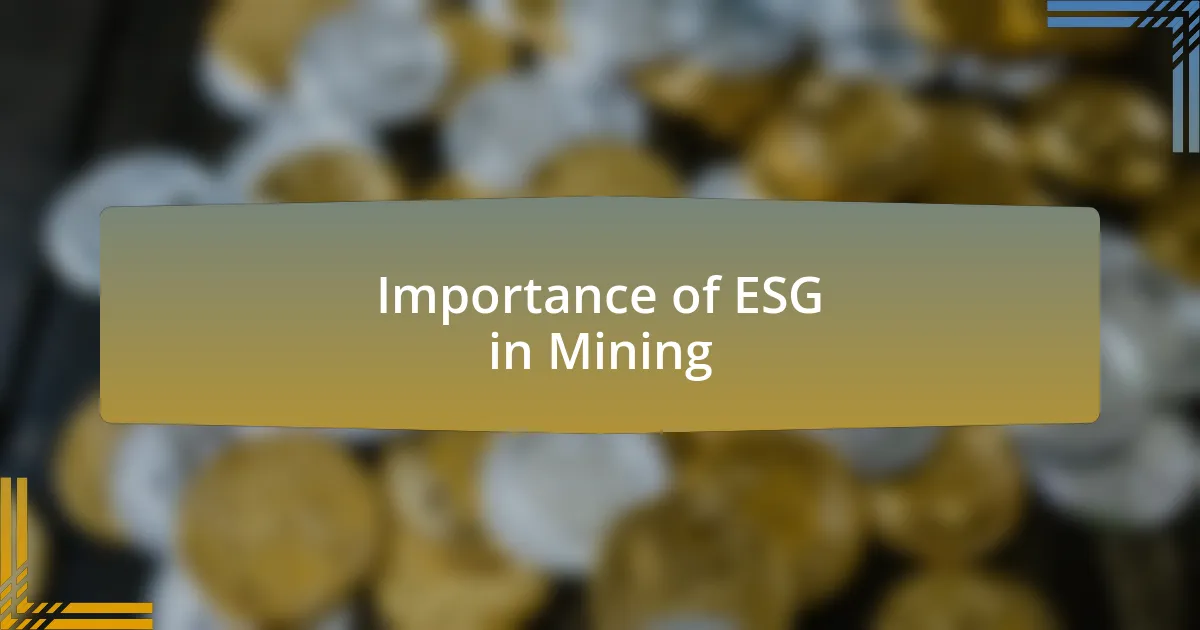
Importance of ESG in Mining
The importance of ESG in mining cannot be overstated, especially as we face increasing scrutiny from stakeholders and regulators. Reflecting on my experiences in the industry, I recall a project where local environmental regulations transformed our operational approach. Adapting to these changes wasn’t just a necessity; it became an opportunity to innovate sustainably, showcasing that respecting the environment can lead to enhanced profitability.
I’ve often thought about the social implications tied to mining activities. I remember speaking with a community leader who expressed hope for better educational opportunities driven by mining revenues. It hit me then that ESG isn’t simply about compliance—it’s about fostering authentic relationships with the communities we impact. How do we create a framework that empowers these communities while ensuring that mining investments yield positive social returns? The answer lies in truly engaging with and listening to those voices.
Then there’s governance, which plays a crucial role in establishing trust and accountability. In my journey, I’ve seen firsthand how companies with robust governance structures attract more substantial investments. It raises an interesting point: when investing, how can we discern between mining companies that merely tick the ESG boxes and those that embody these principles? This awareness is what makes the mining sector’s approach to ESG not only vital but transformative, enabling a shift towards truly responsible investment practices.
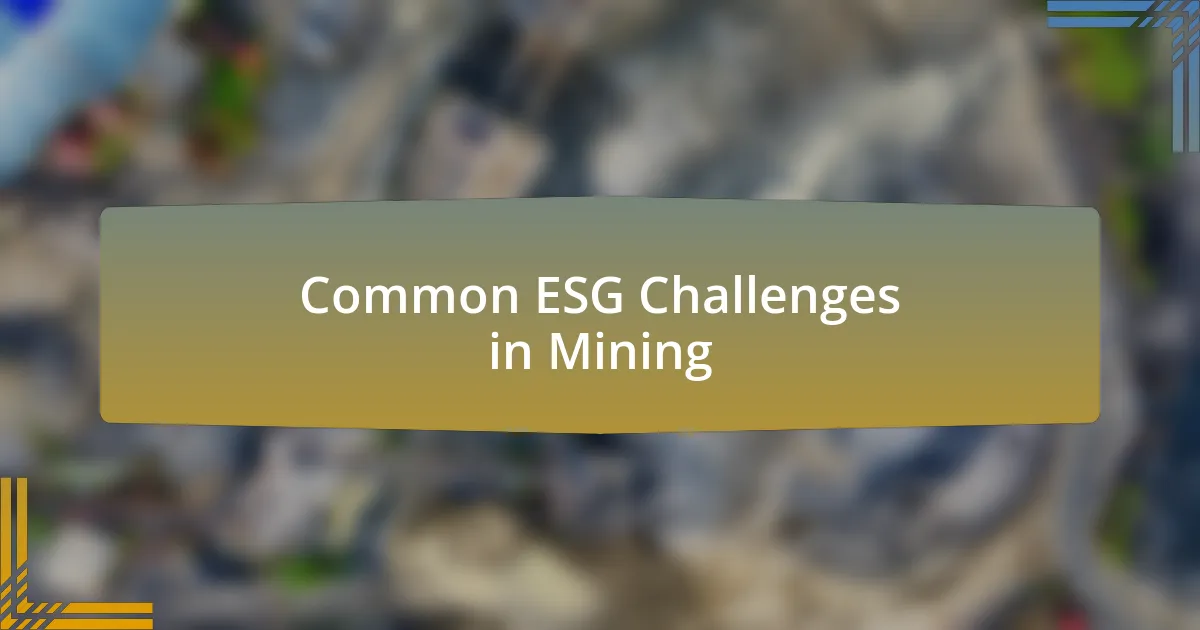
Common ESG Challenges in Mining
Addressing environmental concerns is one of the most pressing ESG challenges in mining. I remember visiting a site where water contamination had become an urgent topic. The anxiety on the faces of locals underscored the importance of responsible waste management. How do we ensure mining operations do not harm the very resources that sustain communities? This question has lingered with me, as it reflects a broader responsibility that stretches far beyond compliance.
Social unrest is another multifaceted challenge that often arises in mining contexts. I vividly recall a town hall meeting where community members voiced their grievances about job opportunities and land rights. It was clear that listening to these concerns wasn’t just about public relations; it was about shaping a sustainable future. How can we ensure our projects respect local traditions while also providing meaningful economic benefits? Balancing these expectations is a delicate dance that requires genuine dialogue and mutual respect.
When it comes to governance, I’ve seen companies struggle with transparency and ethical practices. I once consulted for a firm that faced accusations of regulatory evasion, which severely damaged its reputation. The fallout was a potent reminder: what good is a mining operation if it compromises ethical values? This experience reinforced my belief that establishing a culture of integrity is not just preferable; it is essential for building lasting relationships and ensuring sustainable success in the industry.
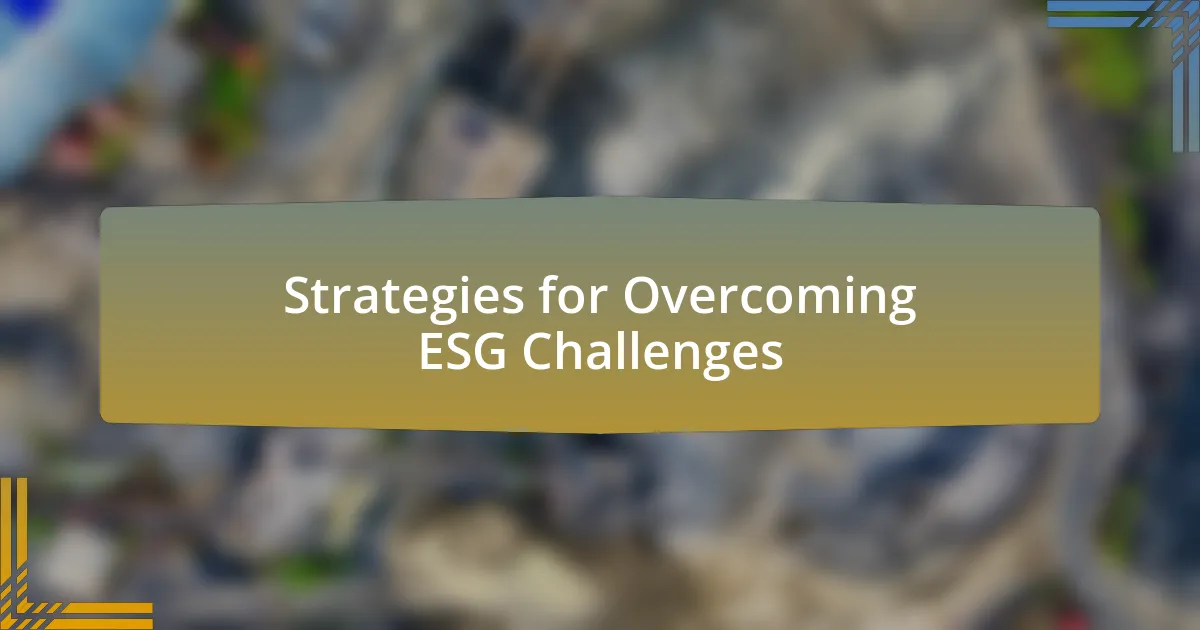
Strategies for Overcoming ESG Challenges
One effective strategy for overcoming ESG challenges is proactive community engagement. I once worked with a mining project that faced significant pushback due to perceived environmental risks. By organizing community workshops, we not only educated residents about our sustainability initiatives but also invited their input. This collaborative approach created trust and transformed skepticism into support—reminding me that genuine dialogue can turn adversaries into allies.
Implementing rigorous environmental monitoring systems is another crucial step. I recall a project where we established real-time monitoring of air and water quality. This transparency not only reassured stakeholders but also allowed us to act swiftly if any issues arose. I found that embracing accountability not only mitigates risks but also enhances a company’s reputation in the eyes of investors and the community alike.
Lastly, integrating ESG criteria into investment decisions is essential for long-term sustainability. In one of my previous roles, we established a framework that weighed both financial and non-financial impacts. Instead of viewing ESG as a compliance burden, we positioned it as a critical factor for enduring investment success. By doing this, we encouraged a mindset shift that recognized the intrinsic link between sustainable practices and financial performance. How can we expect to thrive in a world increasingly driven by ESG considerations if we don’t embrace this holistic approach?
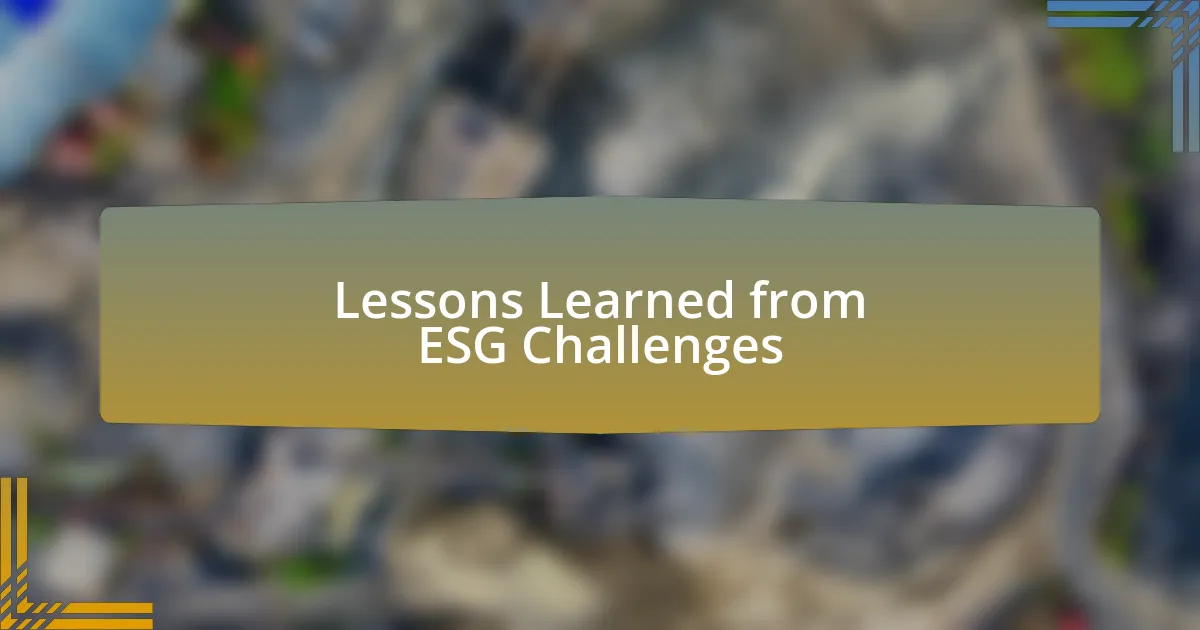
Lessons Learned from ESG Challenges
When reflecting on the ESG challenges I faced, one vital lesson was the importance of adaptability. I recall a project where our original sustainability strategy fell flat due to unforeseen community concerns. By reevaluating our approach and remaining open to change, we formulated a new plan that addressed those issues directly. This taught me that being flexible is not just about problem-solving; it’s about being truly responsive to the evolving landscape around us.
A poignant realization from my experiences is the emotional weight behind ESG initiatives. In one instance, I attended a community meeting where residents expressed their fears about health impacts from our operations. This moment struck me—these weren’t just statistics or numbers; they were real lives. It reinforced my belief that understanding the human aspect of our projects is crucial. How can we ignore the voices of those affected? Listening actively not only cultivates trust but also reinforces our commitment to responsible mining practices.
Through navigating these challenges, I learned the significance of collaboration across sectors. Working closely with environmental NGOs during one of my projects opened my eyes to innovative solutions we hadn’t considered before. Their insights helped us navigate potential pitfalls much earlier in the process. It made me realize that partnerships can enhance our strategies and lead to more sustainable outcomes. If we can unite diverse perspectives, aren’t we setting the stage for a mining industry that thrives on shared responsibility?